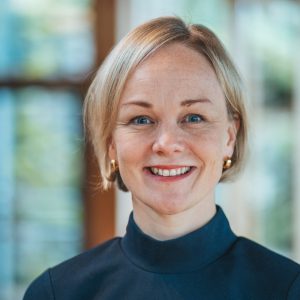By Ingvild Reymert

Two newly published papers investigate variation in professorial recruitment both across countries and disciplines but also within these processes which must be understood as sequential decision-making processes.
Academic recruitment are crucial decision-making processes for universities where those hired are responsible for carrying out the universities two key missions: teaching and research. Academic recruitments are also highly important for academics as these processes represent critical junctures for their career. Hence, it is no surprise that academic recruitment often is a hot topic among academics, however the research on academic recruitment is scarcer.
In our newly published paper, we argue that academic recruitment varies across countries and disciplines where disciplines encounter different hindrances for attracting the best researchers. In a second newly published paper I also show that academic recruitment includes internal variations as these processes must be understood as sequential decision-making processes comprising of a series of judgment processes.
Variation across disciplines and countries: Disciplines encounter different hindrances for attracting the best researchers
Academic recruitment differs across disciplines where disciplines have their own evaluating cultures and apply specific criteria when assessing candidates. For instance, when evaluating candidates for academic positions economists more strongly emphasize the number of publications in highly ranked journals than their colleges in disciplines like physics, cardiology, sociology and informatics.
In our newly published paper “Barriers to attracting the best researchers: perceptions of academics in economics and physics in three European Countries” (Reymert, Vabø, Borlaug and Jungblut 2022), we surveyed researchers in economics and physics in the Netherlands, Norway and the UK and found that different disciplines and countries also encountered different barriers. When asked what they perceived as the most pressing barriers to attracting the best researcher to their institutions economists emphasized salary level and institutional prestige as the main barriers to attracting the best researchers, while physics underlined competition from non-academic actors and career opportunities in their recruitments. We further found differences between countries. In Norway, limited institutional prestige was a key barrier to attracting the best researchers, while researchers in the UK highlighted salary level. Respondents at Dutch universities claimed that they experience multiple, equally important barriers.
Variation within recruitment between different stages of the process
Professorial recruitment does not only vary across countries and disciplines, but there is also much variation within the process itself, as recruitment must be understood as sequential decision-making process consisting of a series of judgment processes. In my recently published paper “Handling Multiple Institutional Logics in Professorial Recruitment” (Reymert, 2022) drawing on interviews and semi-confidential reports from recruitment process in Norway I showed that these recruitment are five-stage processes: designing an announcement text, screening applicants by their CV and bibliometrics, a more profound evaluation of selected candidates by peers, interviews with the highest ranked candidate and approval of the final candidate ranking at department or/and faculty level. These phases of the process were assigned different tasks and overseen by different actors who evaluated the candidates using different criteria.
In the paper I relied on the institutional logics framework and showed that these phases were influenced by different institutional logics. While an organizational logic concerned with organizational strategic needs dominate the crafting of the announcement text and the interview process, an academic logic still dominated the peer review process with peers more concerned about which candidate displayed best research quality according to disciplinary standards and not whom satisfied organizational needs. The sequential nature of the recruitment process with alternating institutional logic separated the logics avoiding potential clashes between them. A theoretical contribution of the paper is thus how sequential problem-solving can decrease tension between conflicting logics, which represents a type of compartmentalization strategy described by Kraatz and Block (2008).
In relation to the discussion of whether universities are becoming more organized, managerial and rationalized, the paper showed that even though the academic logic still remains the most dominated logic in academic recruitment, these processes are becoming more organized with a stronger reliance on an organizational logic. This could partly be due to how universities are confronted with increased complexity when recruiting professors. Internationalization has both increased the number of candidates and made the pool of candidates more heterogenous. At the same time professors are increasingly expected to satisfy multiple skills. The desirable professors must no longer only possess excellent research skills but increasingly satisfy multiple qualifications such as excellent teaching skills, ability to receive grants, administrative skills, superior social skill, be able to engage in dissemination activities and so on. In this more complex landscape university must act more strategically to attract the best scholars. Academic recruitment today thus requires stronger organizationally capability and stronger organizational actorhood.
Ingvild Reymert is Head of Section and Associate Professor at OsloMet, Norway.
References:
Reymert, I., Vabø, A., Borlaug, S.B., Jungblut, J. (2022) Barriers to attracting the best researchers: perceptions of academics in economics and physics in three European countries. Higher Education. https://doi.org/10.1007/s10734-022-00967-w
Reymert, I. (2022) Handling Multiple Institutional Logics in Professorial Recruitment. High Educ Policy. https://doi.org/10.1057/s41307-022-00294-w
Kraatz, M. S., and E. S. Block. (2008) Organizational implications of institutional pluralism. The Sage handbook of organizational institutionalism. 243-275.
This post was initially published on Europe of Knowledge blog.

